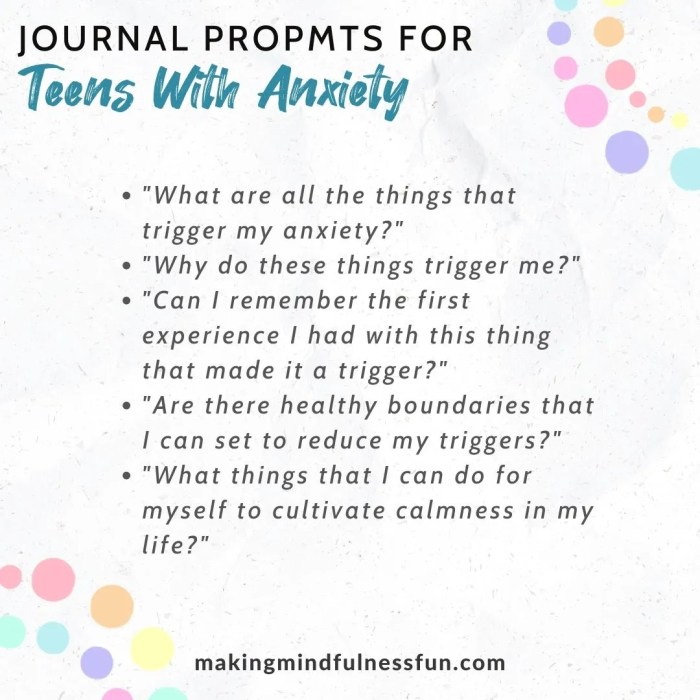Fear prompts teens to act impulsively, a phenomenon with far-reaching consequences. This article delves into the psychological mechanisms underlying this behavior, exploring how fear triggers impulsive actions and the impact it has on teens’ lives. By understanding these mechanisms, we can develop strategies to help teens manage fear and make more responsible decisions.
Fear can manifest in various ways, from anxiety and panic to avoidance and aggression. When teens experience fear, their brains release stress hormones like cortisol and adrenaline, which can impair cognitive function and lead to impulsive behavior. This impulsivity can manifest as risky decision-making, such as substance abuse or unprotected sex, or as aggressive or self-destructive behavior.
Impact of Fear on Impulsive Behavior
Fear is a powerful emotion that can have a significant impact on our behavior. In teenagers, fear can be particularly influential, leading to impulsive actions that can have negative consequences.
Psychological Mechanisms Underlying Fear-Induced Impulsivity
Fear triggers a number of psychological mechanisms that can lead to impulsivity. These mechanisms include:
- Activation of the amygdala:The amygdala is a brain region that is involved in processing fear and other emotions. When the amygdala is activated, it can lead to a release of stress hormones, such as cortisol, which can impair cognitive function and increase impulsive behavior.
- Impairment of prefrontal cortex function:The prefrontal cortex is a brain region that is involved in executive function, such as planning, decision-making, and impulse control. Fear can impair the function of the prefrontal cortex, making it more difficult for teenagers to control their impulses.
Examples of How Fear Can Trigger Impulsive Actions in Teens
Fear can trigger a variety of impulsive actions in teens, including:
- Risky decision-making:Fear can lead teens to make risky decisions, such as driving under the influence of alcohol or drugs, or engaging in unprotected sex.
- Self-harm:Fear can also lead teens to engage in self-harm, such as cutting or burning themselves.
- Substance abuse:Fear can lead teens to abuse drugs or alcohol as a way to cope with their emotions.
Manifestations of Impulsivity: Fear Prompts Teens To Act Impulsively

Types of Impulsive Behaviors Commonly Exhibited by Teens
Impulsivity can manifest in a variety of ways in teens, including:
- Behavioral impulsivity:This type of impulsivity involves acting without thinking, often in response to a strong emotion. Examples of behavioral impulsivity include acting out in anger, engaging in risky behaviors, or spending money without thinking.
- Cognitive impulsivity:This type of impulsivity involves making decisions without thinking through the consequences. Examples of cognitive impulsivity include saying whatever comes to mind, interrupting others, or making snap judgments.
Consequences of Impulsive Behavior for Teens
Impulsive behavior can have a number of negative consequences for teens, including:
- Academic struggles:Impulsive behavior can interfere with academic performance, as teens may be more likely to skip school, procrastinate, or act out in class.
- Risky decision-making:Impulsive behavior can lead teens to make risky decisions, which can have serious consequences, such as injury, illness, or even death.
- Relationship problems:Impulsive behavior can damage relationships, as teens may be more likely to say or do things they regret.
Mitigating Fear’s Influence

Strategies for Helping Teens Manage Fear and Reduce Its Impact on Their Behavior
There are a number of strategies that can help teens manage fear and reduce its impact on their behavior. These strategies include:
- Identifying and challenging fear-inducing thoughts:Teens can learn to identify the thoughts that trigger their fear and challenge these thoughts with more rational ones.
- Developing coping mechanisms:Teens can develop coping mechanisms to help them manage their fear, such as relaxation techniques, exercise, or spending time with loved ones.
- Seeking professional help:If fear is significantly impairing a teen’s life, they may need to seek professional help from a therapist or counselor.
Promoting Self-Regulation, Emotional Coping Mechanisms, and Problem-Solving Skills
Parents and educators can help teens promote self-regulation, emotional coping mechanisms, and problem-solving skills by:
- Setting clear limits and expectations:Setting clear limits and expectations can help teens learn to control their impulses.
- Teaching problem-solving skills:Teaching teens problem-solving skills can help them learn to think through problems and make responsible decisions.
- Encouraging open communication:Encouraging open communication can help teens feel comfortable talking about their fears and concerns.
Role of Adults and Support Systems

Supporting Teens Experiencing Fear and Impulsivity
Parents, teachers, and mentors can play a vital role in supporting teens who are experiencing fear and impulsivity. These adults can provide support by:
- Creating a safe and supportive environment:Creating a safe and supportive environment can help teens feel more comfortable talking about their fears and concerns.
- Providing guidance and support:Providing guidance and support can help teens learn to manage their fear and make responsible decisions.
- Connecting teens with resources:Connecting teens with resources, such as therapists or counselors, can help them get the help they need.
Fostering Emotional Well-Being and Responsible Decision-Making
Adults can help teens foster emotional well-being and responsible decision-making by:
- Encouraging teens to express their emotions:Encouraging teens to express their emotions can help them learn to cope with their feelings in a healthy way.
- Teaching teens about the consequences of their actions:Teaching teens about the consequences of their actions can help them make more responsible decisions.
- Providing opportunities for teens to practice self-control:Providing opportunities for teens to practice self-control can help them develop the skills they need to manage their impulses.
Educational and Therapeutic Interventions
Evidence-Based Educational Programs, Fear prompts teens to act impulsively
There are a number of evidence-based educational programs that can help teens manage fear and impulsivity. These programs typically include components such as:
- Psychoeducation:Providing teens with information about fear and impulsivity can help them understand their own experiences.
- Cognitive-behavioral therapy (CBT):CBT is a type of therapy that helps teens identify and change the thoughts and behaviors that contribute to their fear and impulsivity.
- Mindfulness training:Mindfulness training can help teens learn to focus on the present moment and reduce their reactivity to fear-inducing thoughts.
Therapeutic Interventions
In some cases, teens may need to receive therapeutic interventions to address their fear and impulsivity. These interventions may include:
- Individual therapy:Individual therapy can help teens explore the underlying causes of their fear and impulsivity and develop coping mechanisms.
- Family therapy:Family therapy can help teens improve their relationships with their family members and learn to manage their fear and impulsivity in a family context.
- Group therapy:Group therapy can provide teens with a safe and supportive environment to share their experiences and learn from others.
Case Studies and Real-World Examples
Challenges and Successes in Addressing Fear-Induced Impulsivity in Teens
Case studies and real-world examples can illustrate the challenges and successes in addressing fear-induced impulsivity in teens. These examples can help parents, educators, and clinicians understand the different ways that fear can manifest in teens and the various strategies that can be used to help them.
Lessons Learned and Best Practices
Case studies and real-world examples can provide valuable lessons learned and best practices for addressing fear-induced impulsivity in teens. These lessons and best practices can help parents, educators, and clinicians develop more effective interventions for helping teens manage their fear and impulsivity.
User Queries
What are the common types of impulsive behaviors exhibited by teens?
Impulsive behaviors in teens can range from risky decision-making, such as substance abuse or unprotected sex, to aggressive or self-destructive behavior.
How can parents and teachers support teens experiencing fear and impulsivity?
Parents and teachers can provide support and guidance by creating a safe and supportive environment, encouraging open communication, and promoting self-regulation skills.